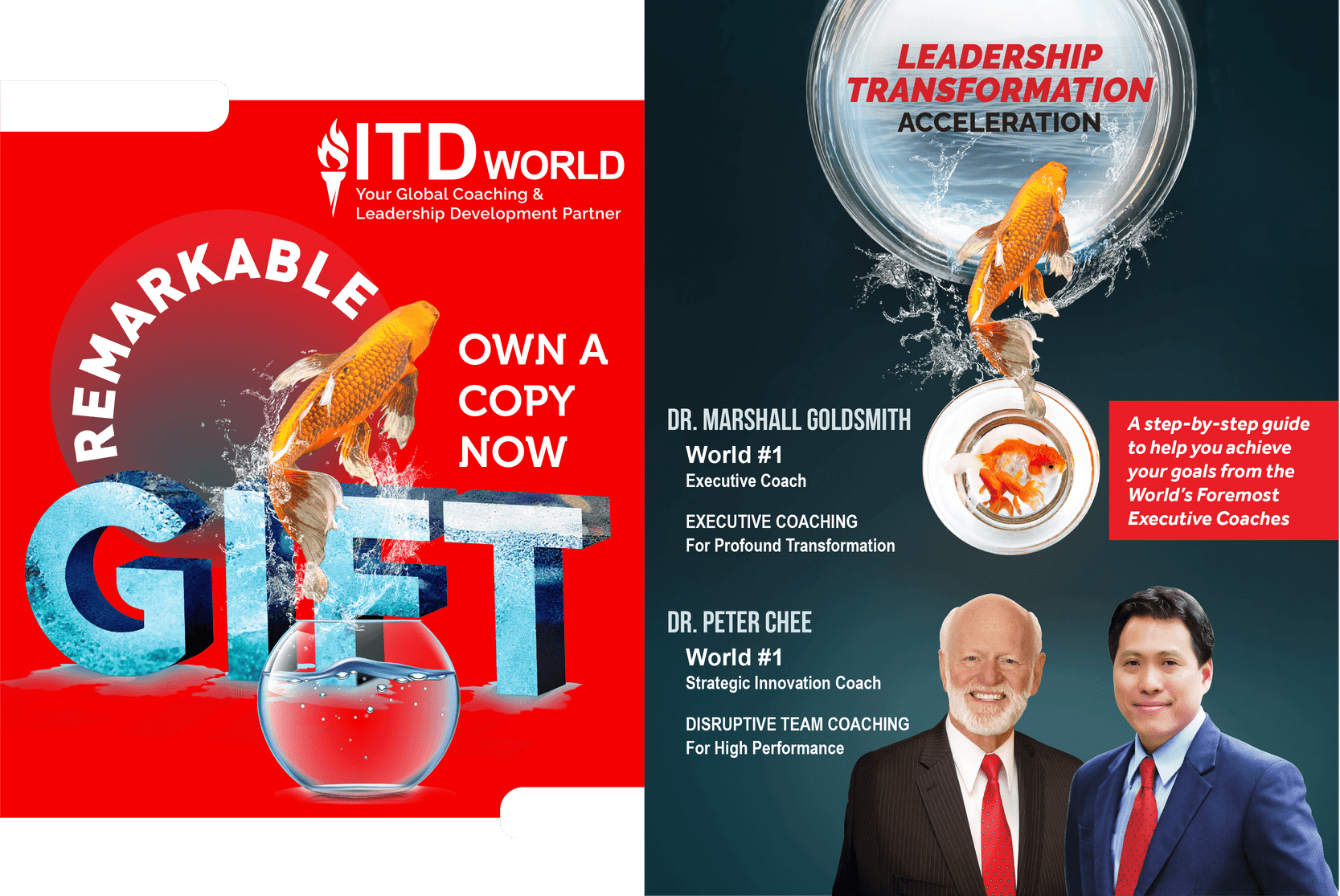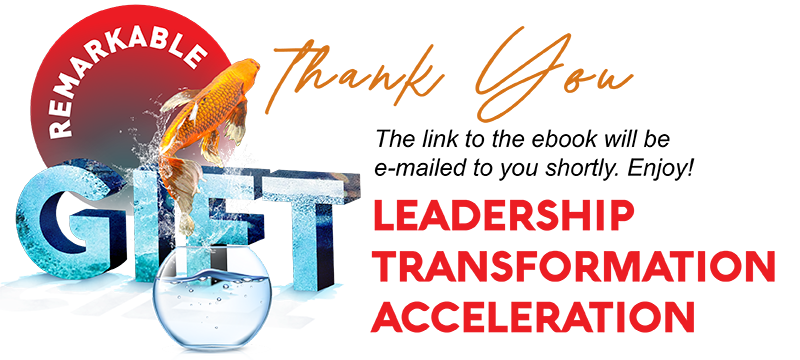Discover the art of self leadership – including key concepts and strategies – to start mastering your life and unlocking your full potential.
Whether you’re aiming to crush professional goals, build stronger relationships, or simply master your inner world, self leadership is a critical element that will empower you to rise above limitations and become the architect of your own success. In the article below, we will explore the core principles of leading self, equip you with practical strategies to cultivate essential skills, and unveil the transformative impact it poses on every aspect of your life.
(by Jonathan M. Pham)
Highlights
- Self-leadership is the ability to understand yourself, set goals, and take action to achieve them, all while navigating life’s challenges. It is about setting the vision and charting the course – unlike self-management, which keeps you driving efficiently towards that destination.
- The ability to lead yourself is essential for personal growth, strong relationships, overall well-being, and fulfillment in life – as it empowers you to make better choices, manage yourself, and achieve your goals.
- Leading self is a lifelong process that requires continuous efforts and ongoing learning from mentors/ more experienced people.
- To become a strong self-leader, one needs to utilize various strategies – including but not limited to cultivating self-awareness, setting SMART goals, managing time, and boosting inner motivation through positive practices.
What is Self Leadership?
Self-leadership – also referred to by other terms such as personal leadership/ self-empowerment/ self-mastery/ leading self – is the ability to take charge of your own life and drive yourself toward your goals. It’s about understanding your values, strengths, and weaknesses, using those insights to set intentions and motivate yourself, and taking responsible action to achieve them. It’s the inner compass that guides you through life’s challenges and opportunities.
Key aspects/ characteristics of a self-leader:
- Self-awareness: Knowing one’s values, strengths, weaknesses, motivations, and triggers.
- Self-regulation: Managing one’s emotions, thoughts, and behaviors effectively.
- Integrity & Authenticity: Living in accordance with one’s values and beliefs.
- Goal setting & planning: Defining clear, specific, and achievable goals aligned with one’s values.
- Self-influence & Motivation: Finding ways to stay focused, inspired, and energized to take action – be it self-reward, self-talk, or mental imagery.
- Self-discipline: Sticking to one’s commitments and overcoming challenges.
- Self-efficacy: Believing in one’s own ability to accomplish goals and tasks, as well as to overcome self-doubt, fear, and anxiety.
- Resilience: Bouncing back from setbacks and learning from mistakes.
- Adaptability: Willingness to adjust plans and strategies in response to changing circumstances.
- Continuous improvement: Always looking for ways to learn and grow, by soliciting feedback, reflecting on one’s experiences, and applying knowledge wherever possible.

Examples of Self Leadership in Life
Self-leadership is observable in various aspects of our lives, from personal goals to professional endeavors. Here are some examples across different domains:
Personal development
- Starting a morning routine: Waking up early, exercising, and meditating to kickstart your day with focus and intention.
- Learning a new skill: Committing to taking online courses, reading books, or practicing consistently to master something you’ve always wanted to learn.
- Overcoming a fear: Facing your fear of public speaking by joining a Toastmasters club or volunteering to present at work.
- Identifying a personal weakness: Realizing that you struggle with an issue (e.g. procrastination) and deciding to set daily goals/ track your progress to overcome it.
- Reflecting on previous experiences: Pondering over setbacks/ failures (e.g. failing a test/ losing a client), extracting lessons, and trying again – instead of giving up or passing the blame.
- Practicing self-compassion: Talking kindly to yourself, forgiving mistakes, and focusing on self-improvement instead of self-criticism.
Workplace
- Initiating a new project: Identifying a gap in your organization, proposing a solution, and leading the implementation despite initial challenges.
- Saying no to additional workload: Recognizing your capacity and politely declining projects that would compromise your quality or well-being.
- Providing constructive feedback: Approaching a colleague with specific, actionable feedback for improvement, even if it might be uncomfortable.
- Taking responsibility for mistakes: Owning up to errors, analyzing what went wrong, and developing a plan to learn and prevent them in the future.
Relationships
- Setting healthy boundaries: Communicating your needs and expectations clearly and respectfully in your relationships.
- Actively listening to others: Giving your full attention, asking clarifying questions, and showing genuine interest in their perspectives.
- Offering support and encouragement: Being a pillar of strength for loved ones during difficult times.
- Taking initiative in planning activities: Proposing ideas, organizing outings, and actively engaging in creating shared experiences.
Overall well-being
- Practicing mindfulness: Engaging in meditation or deep breathing exercises to manage stress and maintain emotional balance.
- Pursuing passions & interests: Engaging in creative pursuits such as painting/ playing guitar, even if it is not directly related to your work/ education.
- Developing a healthy sleep schedule: Prioritizing sufficient rest, creating a relaxing bedtime routine, and sticking to it, even on weekends.
- Maintaining a balanced diet: Making conscious choices about what to eat and fueling the body with nutritious foods.
- Finding healthy coping mechanisms: Managing stress through activities like exercise, mindfulness, or spending time in nature.
- Connecting with loved ones: Nurturing social connections by scheduling regular catch-ups, attending events, and building meaningful relationships.
Read more: 6 Steps for Mental Health and Wellbeing
Self Leadership vs Self Management
While both self-leadership and self-management are crucial for personal growth and success, there are key distinctions between the two concepts.
The former involves setting personal visions, values, and strategies, and adjusting one’s own behavior and performance accordingly. On the other hand, the latter is a subset of the former – it is more focused on the operational and tactical aspects of achieving goals. Specifically, self-management is about controlling and directing actions, emotions, and thoughts, according to one’s objectives and standards.
Self-leadership is aimed at enhancing your skills, abilities, and outcomes – in other words, it’s about visualizing the future you desire. For self-management, the focus is on maintaining efficiency and competence, and overcoming distractions, temptations, and obstacles. As such, it’s about optimizing the present.
Think of self-management as driving a car efficiently within a set course. You control the speed, gear changes, and fuel usage, but the destination is already determined. Self-leadership, on the other hand, is choosing the destination, planning the route, and making adjustments on the fly as needed. You are the driver, navigator, and mechanic all in one.
Below is a more detailed breakdown of the differences between the two terms:
| Aspect | Self-Leadership |
Self-Management
|
| Focus | Change, vision and growth |
Tasks and efficiency
|
| Approach | Proactive, strategic and creative |
Reactive, operational and practical
|
| Motivation & Direction | Internal factors (e.g. personal growth, purpose, and fulfillment) |
External factors (e.g. deadlines, rewards, or consequences)
|
| Autonomy | High | Moderate |
| Scope | Encompasses various aspects of life, including personal growth, career, relationships, and well-being |
Primarily focuses on managing specific tasks and resources within a defined context
|
| Goals | Set by oneself |
May be set by others
|
| Examples | Personal projects, overcoming challenges |
Time management, to-do lists
|
While distinct, the two can coexist and support each other. Strong self-management skills help you execute your self-leadership goals effectively. Conversely, self-leadership empowers you to manage your time and tasks in a way that aligns with your vision and values.

Importance of Self Leadership
Self-leadership is the DNA of life leadership. It is the core of leading yourself and others.
Gary Ryan Blair
Self-leadership is an incredibly important skill for several reasons. The benefits it offers span across various aspects of your life, including:
- Increased self-awareness
Learning to lead yourself requires the cultivation of a deeper understanding of your values, strengths, and weaknesses, which provides the foundation for better decision-making and personal development. You become the person in charge of your life, make choices aligned with your values, and shape your own path. The result is a more authentic, purposeful, and fulfilling life.
- Greater effectiveness & self-discipline
You are less reliant on external motivators – while at the same time becoming more capable of setting ambitious goals, and overcoming challenges with intrinsic drive. In the workplace, you begin taking ownership of your work, managing time efficiently, and delivering high-quality results consistently. Setbacks are now less intimidating, as you are now more resilient and efficient in terms of adjusting to changing circumstances.
- Career advancement
Research by McKinsey has defined self-leadership as one of the critical capabilities required for the future of work – especially considering the advancements of automation, artificial intelligence, remote work, and various other emerging trends. Being able to take initiative, seek opportunities, and advocate for yourself is crucial to paving the way for professional growth and promotion. Not to mention, it also transforms you into a lifelong learner who constantly seeks ways to expand your knowledge and skills.
- Stronger leadership potential
You can’t lead others if you can’t lead yourself.
Andrew Bryant
Leading self is the foundation for effective leadership of others. When you are able to manage yourself effectively, you become a role model who inspires and motivates others through initiative, accountability, and clear vision. Not to mention, it also enables you to make informed choices based on shared values and goals, leading to better outcomes for yourself and the team.
Another study by McKinsey has revealed that the annual cost for organizations might go up to 160,000 dollars per year if they don’t invest in self-improvement for the leaders. Given the dynamic and unforgiving nature of the business world these days, companies are – more than ever – encouraged to take into account the ability to lead oneself as a crucial aspect of their training and development initiatives.
- Improved well-being
Another significant benefit of self-leadership is a boost in one’s overall well-being and life quality. Being aware of – and capable of regulating yourself translates to better stress management, self-compassion, and greater overall satisfaction. You trust your abilities, celebrate successes, and believe in your potential to visualize the future you desire.
- Nurturing relationships
You express your needs and listen actively, fostering stronger connections. Whether it’s your colleagues, clients, or loved ones, you become capable of navigating the intricacies of all interactions, building trust, managing conflicts, and collaborating constructively.
Great leadership starts with self-leadership
Development of Self Leadership Theory
Self-leadership theory has evolved over several decades, drawing from various fields like psychology, management, and social cognitive theory. One of the most influential frameworks is the Revised Self-Leadership Questionnaire (RSLQ) developed by Houghton and Neck (2002). The RSLQ is a 35-item measure that assesses three dimensions of self-leadership:
- Behavior-focused strategies: Through tactics such as self-observation, self-goal setting, self-reward, self-punishment, and self-cueing, one may gain control of their own actions and behaviors, while at the same time overcoming distractions and obstacles.
- Natural reward strategies: These are strategies that revolve around the positive and enjoyable aspects of the tasks and activities, as well as natural incentives and rewards for oneself. As such, they play a key role in enhancing our intrinsic motivation and satisfaction – especially when it comes to tasks that are not naturally motivating.
- Constructive thought pattern strategies: By practicing self-talk, mental imagery, beliefs, and assumptions, one becomes better equipped to regulate their own thoughts and emotions, and to overcome negative/ irrational cognitions.
Another important model is the Positive Self-Leadership Development Framework proposed by Du Plessis (2019) – which suggests that self-leadership stems from 4 domains of personal strengths:
- Character strengths: These are the positive traits and virtues that reflect one’s core values and identity, such as curiosity, honesty, and kindness. They enable us to express our authentic selves – and to act in alignment with our moral principles.
- Interests and aspirations: These refer to the passions/ goals that reflect one’s intrinsic motivation and purpose. Through activities such as learning, traveling, and helping others, we have the chance to pursue our visions and bring about a meaningful existence.
- Abilities and talents: By developing and practicing skills like creativity, problem-solving, and communication, we become more capable of leading ourselves and improving performance.
- Environmental strengths: Environmental strengths are the resources and opportunities that reflect one’s context and situation, such as supportive relationships, positive feedback, or inspiring role models – all of which contribute to one’s ability to leverage external factors, influence, and leave behind a positive impact.
And then we have the 8Cs of Self Leadership framework, which defines 8 essential components of personal mastery as follows:
- Calmness: The ability to remain composed regardless of circumstances – which enables one to react to triggers/ challenges in less extreme ways, while at the same time maintaining focus and motivation.
- Clarity: Having a clear, accurate, objective perception of oneself, others, and the situations at hand.
- Curiosity: Demonstrating openness to learn/ explore new things, plus a strong desire to overcome stereotypes and prejudices.
- Compassion: Feeling and showing concern for the well-being of oneself and others, especially when they are suffering or in need.
- Confidence: Maintaining a positive, realistic belief in one’s abilities and potential, rather than succumbing to self-doubt, fear, and anxiety.
- Courage: Having the strength to face difficulties, take action despite uncertainties, and take responsibility for one’s own actions/ misdoings.
- Creativity: The ability to come up with original ideas and innovative solutions that bring value and impact.
- Connectedness: The state of feeling/ being a part of a larger entity, such as a partnership, team, community, or organization – which is crucial to leveraging external resources and creating a positive influence.
Read more: Leadership Branding – Crafting an Inspiring Personal Identity

Pillars of self leadership
How is Self Leadership Developed in a Person?
Self-leadership is about awareness, tolerance, and not letting your own natural tendencies limit your potential.
Scott Belsky
Developing self-leadership is a dynamic and continual process that unfolds throughout one’s life. It requires conscious effort, reflection, and ongoing adaptation. Here are some key elements and components that contribute to its development:
Internal factors/ qualities
- Self-awareness: As we have already discussed, self-awareness makes up the foundation of self-leadership. It involves understanding your values, strengths, weaknesses, motivations, and triggers. Techniques like journaling, personality assessments, and mindfulness may be leveraged to facilitate self-awareness.
- Self-efficacy: Believing in your ability to achieve your goals is crucial for motivation and persistence. Building self-efficacy requires setting achievable goals, celebrating successes, and the willingness to learn from setbacks. In addition, it’s also about recognizing and challenging negative beliefs that hold you back, replacing them with empowering affirmations.
- Intrinsic motivation: Finding internal drive and purpose – whether through exploring one’s passions, connecting goals with core values, or practicing gratitude – fuels the ability to manage better oneself.
- Emotional intelligence: Managing your emotions, empathizing with those of others, and building healthy relationships are essential for self-leadership. Techniques like cognitive restructuring, positive self-talk, and active listening all contribute to the cultivation of EQ.
- Growth mindset: Embracing challenges and viewing mistakes as opportunities for learning fosters resilience and continuous self-improvement.
External factors
- Mentorship and coaching: Learning from experienced leaders and coaches provides one with valuable guidance and support for taking charge of their own life.
- Accountability partner: Having someone who supports your progress, offers feedback, and holds you accountable. Input from your partner and others provides a great tool for monitoring and evaluating progress.
- Learning and development: It’s about actively seeking opportunities to step out of your comfort zone, learn new skills, and apply what you have learned to current/ future situations.
- Supportive network: Surrounding yourself with positive and encouraging people, while observing others who demonstrate strong self-leadership, can inspire and motivate you on the path towards mastery.
- Challenges and setbacks: Facing challenges and overcoming setbacks help build resilience, self-efficacy, and problem-solving skills.
Other key components of development
- Goal setting: Setting SMART goals (Specific, Measurable, Achievable, Relevant, Time-bound) provides direction and focus for one’s self-leadership journey.
- Self-discipline: The ability to manage time, resist distractions, and follow through on commitments is critical for visualizing your goals.
- Self-reflection: Regularly evaluating your progress, identifying areas for improvement, and adapting your strategies are essential for continuous growth.
- Self-care: Prioritizing your physical and mental well-being through healthy habits like sleep, exercise, and relaxation reduces stress and enhances overall effectiveness.

Foundation skills & qualities for personal leadership
Challenges of Leading Self
Self-leadership, though empowering, comes with its own set of challenges. Here are some common ones you might encounter:
Internal challenges
- Self-doubt & Imposter Syndrome: Questioning your abilities, comparing yourself to others, and feeling like you don’t deserve success all hinder your progress.
- Procrastination & lack of discipline: Difficulty getting started, putting things off, and struggling to find the drive to pursue your goals.
- Negative self-talk & perfectionism: Criticizing yourself, setting unrealistic expectations, and fearing failure all constitute the creation of mental barriers and impede growth.
- Emotional regulation: Difficulty managing emotions, feeling overwhelmed, and struggling to handle pressure.
External challenges
- Distractions: Juggling responsibilities, managing distractions, and prioritizing tasks effectively often prove challenging for many of us – especially in the current fast-paced world.
- Work-life balance: Difficulty setting boundaries and integrating self-leadership activities into a busy life makes many of us susceptible to conflict and burnout.
- Lack of support systems: Not having encouraging peers, mentors, or role models are reasons why many feel isolated and deprived of motivation on their journey.
- Negative influences & social pressures: Surrounding yourself with negativity or succumbing to societal expectations results in conflicting priorities and impacts self-efficacy.
- Over-dependence on external motivation: Relying solely on external rewards and recognition for motivation.
Everyone faces challenges – the key is to learn from them, adapt, and keep moving forward. By identifying your strengths and weaknesses, building resilience, and seeking support, one will be able to overcome all obstacles and unlock their full potential.
Self-awareness – Key to effective leadership
Read more: Weak Leadership – How It Undermines Success
Self Leadership Strategies
Developing and improving your self-leadership is a rewarding journey toward personal growth and achievement. Here are some effective strategies to get you started:
-
Cultivating self-awareness
- Journaling: Regularly reflect on your experiences, thoughts, and emotions to gain insights into your values, strengths, weaknesses, and triggers.
- Personality assessments: Take validated assessments like Myers-Briggs or StrengthsFinder to gain objective insights into your personality traits – things that define you as a person (in other words, your personal leadership brand) – plus skills for improvement.
- Feedback: Consult with trusted friends, colleagues, or mentors to gain different perspectives on your strengths and areas for improvement.
-
Strengthening goal setting & planning
- Specific targets: Choose specific skills that you want to focus on and practice, such as communication, influence, time management, or emotional resilience, based on self-assessment and leadership style.
- SMART objectives: Set Specific, Measurable, Achievable, Relevant, and Time-bound goals to provide clear direction and focus.
- Vision boards: Create visual representations of your goals to maintain motivation and clarity.
- Break down goals: Divide large goals into smaller, actionable steps to avoid feeling overwhelmed.
- Track progress: Regularly monitor your progress and celebrate milestones to stay motivated.
-
Practicing self-discipline & management
- Prioritization: Learn to identify and prioritize important tasks to ensure you spend time on what matters most.
- Time management techniques: Employ tools like time blocking, Pomodoro technique, or scheduling apps to manage your time effectively.
- Minimizing distractions: Identify and minimize distractions, like social media notifications, to stay focused on your tasks.
- Developing routines: Create consistent routines for work, sleep, and exercise to promote structure and productivity.
-
Boosting self-motivation & initiative
- Connect goals to values: Ensure your goals align with your core values to foster intrinsic motivation.
- Positive self-talk: Challenge negative self-beliefs and practice positive affirmations to boost confidence.
- Visualization: Visualize yourself achieving your goals to enhance motivation and focus.
- Reward yourself: Celebrate your achievements, whether big or small, to maintain motivation and reinforce positive behavior.
-
Enhancing problem-solving & decision-making
- Mind mapping: Visually organize information and explore different solutions to problems.
- Pros and cons list: Weigh the benefits and drawbacks of different options.
- Seeking diverse perspectives: Consult with others and consider different viewpoints before making a choice.
- Learning from mistakes: Analyze past experiences and failures to improve decision-making in the future.
-
Developing stress management & emotional intelligence
- Mindfulness practices: Techniques like meditation or deep breathing can help manage stress and regulate emotions.
- Emotional awareness: Identify your emotions and their triggers to better understand your reactions.
- Empathy building: Practice active listening and understanding the perspectives of others.
- Healthy coping mechanisms: Develop healthy ways to manage stress, like exercise, hobbies, or spending time in nature.
-
Enhancing learning & adaptability
- Read books and articles: Continuously seek knowledge and learn new skills in areas relevant to your goals.
- Take online courses or workshops: Upskill yourself through structured learning opportunities.
- Expand your network: Connect with experienced individuals such as coaches, mentors, or experienced leaders – who can guide and support your development.
- Embrace challenges: View challenges as opportunities to learn and grow, fostering a growth mindset. Additionally, consider taking on more responsibilities, initiatives, and projects in your current role, so as to demonstrate your leadership potential.
-
Reflecting & seeking feedback
- Regular self-reflection: Dedicate time to reflect on your progress, identify areas for improvement, and adjust your strategies.
- Feedback from others: Actively seek constructive feedback from trusted sources to gain different perspectives.
- Performance reviews: If applicable, utilize performance reviews at work to identify strengths and areas for development.
- Stay open to learning: Be receptive to feedback and willing to adapt your approach based on new information.
Read more: Skill Development – A Guide to Future-Proofing Yourself

Stages of self leadership
Self Leadership in Practice
Meet Sarah, a software developer eager to grow her career and become a more influential team member.
Self-awareness
- Sarah started by journaling daily, reflecting on her work experiences, emotions, and challenges. This helped her identify her strengths in problem-solving and attention to detail, but also revealed a tendency to shy away from public speaking and advocating for her ideas.
- She took the Myers-Briggs personality assessment, discovering she was an ISTJ, which confirmed her analytical and organized nature. However, it also highlighted areas for improvement, like building stronger relationships and expressing her opinions more confidently.
- Seeking feedback from a trusted mentor, Sarah learned she was perceived as reliable and competent but could be more proactive and take initiative on projects.
Goal setting & planning
- Based on her self-assessment, Sarah set SMART goals to:
- Improve public speaking: Join a Toastmasters club and practice regular presentations.
- Increase proactiveness: Volunteer for challenging projects and actively suggest solutions.
- Develop leadership skills: Take online courses on team leadership and communication.
- She created a vision board showcasing her aspirations to lead a technical team and present at industry conferences.
- Breaking down her goals into smaller steps, Sarah started with short presentations in team meetings and practiced positive self-talk to overcome her fear of public speaking.
Self-discipline & management
- Sarah used the Pomodoro Technique to manage her time effectively, dedicating focused work periods to coding and learning new skills.
- She minimized distractions by silencing notifications and designated specific times for checking social media.
- By creating a consistent routine with dedicated work hours and regular exercise, Sarah improved her focus and productivity.
Boosting self-motivation & initiative
- Sarah connected her goals to her core value of continuous learning and professional growth, boosting her intrinsic motivation.
- She challenged negative self-beliefs about public speaking by replacing them with affirmations like “I have valuable insights to share.”
- Sarah visualized herself delivering successful presentations and leading discussions, further enhancing her motivation.
- To celebrate her progress, she rewarded herself with small treats after completing challenging tasks or practicing presentations.
Enhancing problem-solving & decision-making
- When facing technical challenges, Sarah used mind mapping to visually organize information and brainstorm solutions.
- She created pros and cons lists to weigh different approaches before making decisions.
- Sarah discussed complex problems with colleagues, seeking diverse perspectives and enriching her decision-making process.
- By analyzing past mistakes, she learned to handle similar situations more effectively in the future.
Developing stress management & emotional intelligence
- Sarah started practicing mindfulness meditation to manage stress and regulate her emotions during presentations.
- She became more emotionally aware, identifying her triggers and learning to react calmly in challenging situations.
- By actively listening to colleagues and understanding their perspectives, Sarah built stronger relationships and fostered collaboration.
- She developed healthy coping mechanisms like exercise and spending time in nature to manage stress and maintain well-being.
Enhancing learning & adaptability
- Sarah regularly read articles and online courses on software development trends and leadership skills.
- She expanded her network by connecting with experienced developers and attending industry events to learn from their experiences.
- When an opportunity arose to lead a small coding project, Sarah embraced the challenge, viewing it as a chance to develop her leadership skills and showcase her potential.
Reflecting & seeking feedback
- Sarah regularly reflected on her progress, celebrating achievements and identifying areas for further improvement.
- She actively sought constructive feedback from her mentor and colleagues, gaining valuable insights into her strengths and weaknesses as a leader.
- During her performance review, Sarah discussed her development goals and leadership aspirations with her manager, receiving further support and guidance.
By actively developing her self-leadership skills, Sarah gained confidence, became a more influential team member, and paved the way for her future career growth.

Principles of Self Leadership
- Know yourself: Understanding your values, strengths, weaknesses, motivations, and triggers is the cornerstone of self-leadership. Reflect regularly, seek feedback, learn from experiences, and continually strive to grow in all aspects of life.
- Be technically and tactically proficient: This principle is about acquiring and refining the skills/ knowledge relevant to your role and responsibilities. For this purpose, you need to make a conscious effort to stay updated to the latest trends, and to apply the best practices in your field to your work.
- Own your journey: Take full responsibility for your actions, choices, and outcomes. Embrace a growth mindset, learn from mistakes, and don’t shy away from seeking help when needed.
- Motivate yourself and others: This principle is about being able to find intrinsic rewards and satisfaction from your own work and activities, rather than relying on external incentives or pressures. It also involves being able to communicate your vision, purpose, and goals to others, and encourage them to join you in achieving them.
- Fuel your fire: Aim to connect all goals to your deepest values, so as to tap into intrinsic motivation. Consider practicing positive self-talk, visualize success, and celebrate milestones to stay engaged.
- Master your time: Prioritize tasks effectively, manage distractions with techniques like time boxing, and create routines that support your goals. Consistency and focus are key to leading oneself.
- Be emotionally resilient: Practice mindfulness, adopt healthy coping mechanisms, and develop empathy to navigate complex situations effectively.
- Nourish yourself: Prioritize your physical and mental health through exercise, sleep, healthy eating, and stress management practices. Self-care fuels the energy and resilience needed for self-leadership.
- Live your truth: Be true to yourself and express your authentic voice to gain trust and self-respect.
Coaching Questions to Promote Self Leadership
Here are some questions categorized by area to guide your self-leadership journey:
Self-awareness:
- What are the core values that guide my decisions and actions?
- What are my biggest strengths, and how can I utilize them more effectively?
- What are my biggest weaknesses? How may I address them constructively?
- What are my typical emotional triggers? How can I manage them better?
- What are my long-term aspirations? How can I break them down into achievable goals?
Goal setting:
- What are my current goals and are they truly aligned with my core values?
- Are they SMART?
- What are the biggest obstacles I may face in the journey?
- What specific steps can I take right now to move closer to my goals?
- Who can hold me accountable for my progress?
Self-discipline:
- What are my biggest time-management challenges and how to overcome them?
- What are my typical distractions and how to minimize their impact?
- How can I create a more structured and productive daily routine?
- What reward system can I implement to stay motivated and celebrate progress?
- How can I hold myself accountable for sticking to my commitments?
Self-motivation:
- What are the intrinsic motivators that drive my actions?
- How can I connect my goals to deeper values and purpose?
- How can I foster a more positive and growth-oriented mindset?
- What resources or strategies can be used to stay motivated during setbacks?
- How can I cultivate a sense of ownership and take initiative in life?
Problem-solving & decision-making:
- What are my typical approaches to solving problems? Are they effective?
- How can I gather more information and different perspectives before making decisions?
- What are the potential biases that might influence my choices?
- How can I learn from past mistakes and improve my problem-solving skills?
- How can I embrace challenges as opportunities for growth and learning?
Emotional intelligence:
- How aware am I of my own emotions and their impact on others?
- What are some healthy coping mechanisms for dealing with stress?
- How can I improve my communication skills to build stronger relationships?
- How can I practice empathy and understand the perspectives of others?
- What self-care practices can be incorporated into my routine for better well-being?
Learning & adaptability:
- What am I currently learning to expand my knowledge and skills?
- How can I stay informed about trends and changes in the field?
- How open am I to adapting goals and strategies based on new information?
- What are my biggest fears about stepping out of my comfort zone?
- How can I facilitate a growth mindset and embrace challenges as opportunities?
Collaboration & support:
- Who are the people who can support my self-leadership journey?
- How can I build a network of mentors, coaches, or supportive peers?
- How can I leverage the power of collaboration to achieve my goals?
- How can I offer support and encouragement to others on their journeys?
- How can I celebrate the successes of others and learn from their experiences?
Read more: 175 Powerful Coaching Questions to Drive Change
Self Leadership Exercises & Activities
Self-leadership is like building muscles – it requires consistent practice and engagement to truly produce tangible results. Here are some exercises and activities to help you along the way:
- Values clarification: Create a list of things important to you, then prioritize them to identify your core values. You may consider using online resources or exercises like “Values Inventory”.
- Emotional journaling: Track your emotions throughout the day, identifying triggers and reactions. Use guided prompts or create your own structure.
- Timeboxing: Allocate specific time slots for tasks, minimizing distractions. Timers or apps like Focus Keeper or Forest may be leveraged for this purpose.
- Pomodoro Technique: Work in focused 25-minute intervals with short breaks to boost productivity. Nowadays, there are a variety of timers and dedicated apps that can help you with this task.
- Habit tracker: Monitor and encourage positive habits like exercise, sleep, or reading with the help of apps like HabitBull or Streaks.
- Unsubscribe from distractions: Reduce email notifications, social media distractions, or anything that disrupts your focus.
- Positive affirmations: Repeat positive statements about yourself and your abilities to boost confidence. You can either find inspiration online or create your own.
- Gratitude practice: Reflect on things you’re grateful for daily to cultivate a positive mindset.
- Visualization exercises: Imagine yourself achieving your goals to increase motivation and focus.
Self Leadership Quotes
Self-leadership is the process by which you influence yourself to achieve your objectives.
Andrew Bryant
Self-leadership is not a rare ability reserved only for the Mark Zuckerbergs and Oprah Winfreys of the world. It is a mindset and skill set that can be learned and taught.
Susan Fowler
Self-leadership is the capacity to lead yourself to overcome your fears and limitations, to achieve what you want in life, and to become the person you want to be.
Mastering others is strength; mastering oneself is true power.
Lao Tzu
Knowing yourself is the beginning of all wisdom.
Aristotle
The first and best victory is to conquer self.
Plato
Whoever has no rule over his own spirit is like a city – struck down without walls.
Proverbs 25:28

Self Leadership Books
- Self Leadership: How to Become a More Successful, Efficient, and Effective Leader from the Inside Out by Ana Lucia Kazan and Andrew Bryant. In their publication, Kazan and Bryant go over a comprehensive framework for developing and applying self-leadership skills and strategies – which cover topics such as self-observation, self-awareness, self-regulation, self-discipline, internal motivation, focus and concentration, time management, emotional resilience, self-reflection, and introspection.
- Self-Leadership: The Definitive Guide to Personal Excellence by Christopher P. Neck, Charles C. Manz, and Jeffery D. Houghton. This book provides a comprehensive and practical approach to developing and applying self-leadership skills and strategies, based on the latest research and evidence.
- Limitless: Upgrade Your Brain, Learn Anything Faster, and Unlock Your Exceptional Life by Jim Kwik. Within Kwik’s work, you will discover practical strategies for optimizing your brain performance, overcoming mental barriers, and unleashing your full potential.
- Unleashed: The Unapologetic Leader’s Guide to Empowering Everyone Around You by Frances Frei and Anne Morriss. This book reveals the secrets to unlocking the potential in yourself and others, by fostering a culture of trust, belonging, and empowerment.
- The 7 Habits of Highly Effective People by Stephen R. Covey. A classic and timeless guide to developing the habits and principles of effective self-leadership, such as proactivity, vision, prioritization, synergy, and renewal.
- Self Leadership and the One Minute Manager: Increasing Effectiveness Through Situational Self Leadership by Ken Blanchard, Lawrence Hawkins, and Susan Fowler. A follow-up to the bestselling classic The One Minute Manager, it introduces readers the three secrets to managing themselves – plus tips to accept personal responsibility, diagnose one’s own development level, and adopt the appropriate leadership style to visualize goals.
- Self Leadership and the One Minute Manager: Gain the Mindset and Skillset for Getting What You Need to Succeed by Ken Blanchard, Lawrence Hawkins, and Susan Fowler. A revised edition of the previous book, this one explores the skills needed to become an effective self leader in the current and future work environment, while also updating new insights and tools to help readers empower readers to success.
- 5 Levels of Mastery: Coaching and Mentoring for Love, Happiness and Success by Dr. Marshall Goldsmith and Dr. Peter Chee: This book is based on the authors’ extensive research and practice in coaching, mentoring, training, and developing leaders from over 80 countries. It introduces the 5 levels of mastery that can help anyone achieve greater love, happiness, and success in life – plus 10 disciplines of love, happiness, and success, and the cutting-edge tools/ techniques to apply them.
Self Leadership Training & Coaching Course
For those looking for self-leadership courses, look no further than ITD World’s professional development solutions! With years of experience in coaching and developing leaders across nations, we offer a diverse range of programs, tailored to your individual needs and aspirations.
Why choose ITD World?
- Expert-led instruction: Our facilitators are seasoned professionals with real-world experience, not just academics. They understand the challenges you face and are passionate about guiding you toward success.
- Personalized approach: We take the time to understand your goals, strengths, and weaknesses. Our programs are designed to equip you with the specific skills and tools you need to thrive.
- Interactive learning: Forget one-way lectures! Our programs are highly interactive, featuring engaging activities, discussions, and simulations that help you put your learning into practice.
- Supportive community: You’re not alone on this journey. You’ll connect with a network of like-minded individuals who will support and encourage you throughout your self-leadership development.
- Practical application: We don’t just teach theory. Our programs are designed to help you immediately apply your learnings to your real-life situations, seeing tangible results that impact your career and life.
Let’s start creating a future where you lead with purpose, passion, and success. Contact us today to learn more about our self-leadership development programs and unlock the leader within you!
Other resources you might be interested in:
- Situational Leadership: A Foundational Guide
- Leadership Values: 10 Qualities for Exceptional Results
- Inspirational Leadership: How to Ignite Passion & Purpose in Your Team
- 5 Levels of Self-Mastery: Obtaining Love, Happiness, and Success in Abundance
- Finding Happiness in Your Career: A How-to Guide




